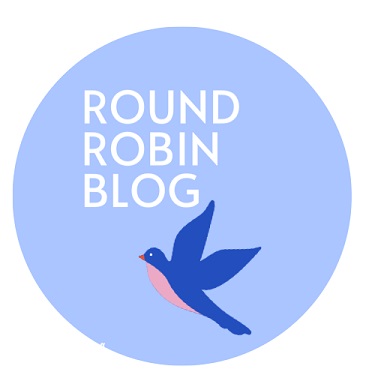It’s August, and time for another authors’ Round Robin. This month the topic has been set by author Rhobin Courtright.
Do you have any character habits or favourite words that always crop up in your writing?
The short and simple answer: yes! The difficulty is, spotting this repetition when it happens.
My husband always reads my first drafts. He suffers from OCD and sometimes feels compelled to read the same sentences more than once. You can imagine how frustrating this is for him at times, and so imagine that frustration tenfold if the author is already repeating themselves. Until my husband read my first drafts, I had no idea how much ‘gazing’ my characters did, or how often they lifted and dropped their heads.

In general I’ve managed to eradicate the head-lifting that made my characters appear as though they had some sort of problem, but I’m afraid the gazing does still tend to creep in unless I’m vigilant!
So this leads to my first tip for cutting out repetition in your writing:
Tip one: Ask someone else to read it
See my comments above. Another pair of eyes can be a real help in catching this type of repetition. Family and friends are fine up to a certain point, but an experienced, thoughtful editor is invaluable.

Tip two: Read your work aloud,
or get your word-processing software to read it, or else send the document to your Kindle and have your Kindle read it aloud.
When we’re speaking we often tend to use the same phrases, too. Some people add a ‘yeah?’ to the end of every sentence. If I’m explaining something, I often add a ‘So’ in a dramatic way at the start of a sentence, even if I’m just explaining how to switch on the boiler.
If you’ve ever gone through the painful exercise of listening to yourself speaking, you’ll realise what I mean. Listening to your own draft spoken aloud can help highlight all sorts of awkwardnesses, including repetition.
Tip three: Use a Word Frequency Counter
I’ve found this word frequency counter on the WriteWords website really useful. (They also have a Phrase Frequency Counter, too.) But caution! These word counters are run by robots, and can lead you down a path of worrying overmuch about the use of certain words. Sometimes replacing something like ‘explained’ with another word can sound simply odd, and it would have been better – and less noticeable for the reader – to keep the repetition. But as a guide, they can be useful.
Tip four: Use your overuse of certain words to check for potential problems with the narrative
I ran the first chapter in my own WIP through the word counter above and found in the first chapter I’d used the word ‘remembered’ six times. And it’s not that my heroine is suffering from some sort of amnesia! So this has made me ask myself am I dropping in too much backstory in chapter one? After running the word count, I’m going to go back through and check.
If you find you’ve used lots of ‘realiseds’ or ‘noticeds’, this can often be a signifier that you’re telling the reader things, rather than showing them through scenes, action, dialogue, etc. (More on Showing vs Telling here.)
Tip five: Check your dialogue (action) beats for repetition
Most novels contain plenty of ‘saids’, but that’s fine, as this is a word readers gloss over. ‘Said’ is there to signify who is speaking, and if you replace it with anything else – ‘spluttered’, ‘barked’, ‘uttered’, etc., that could easily be a distraction.
It is often useful, though, to add a dialogue ‘beat’, which is the description of the action a character is making while talking, and can serve to show their emotion.
For example: ‘I told you not to repeat yourself.’ The headmaster scowled. ‘Have you learned nothing?’
‘Scowled’ is an example of a dialogue beat.
It’s with dialogue beats that I tend to repeat myself the most, with all sorts of sighing and frowning (and head-lifting). It’s easy to tell the reader that someone is angry, upset, excited, nervous, etc., but showing that emotion in a dialogue beat, in a fresh and original way, I find particularly difficult. I often wish there were some kind of thesaurus for dialogue beats, and I could type in, say, ‘furious’, and get a list of dialogue beats to choose from: ‘he bellowed’; ‘he hurled [something]’; ‘his eyes blazed’. Instead, I find myself repeating things like ‘her eyes lit up’ to signify enthusiasm, and then stalling over what I could use instead.
For more about dialogue beats, and an interesting way to come up with them, I found this article on Kathy Steinemann’s blog really useful.

Tip six: Read, read, read other people’s writing
Repetition can be a sign you’re relying on the same vocabulary or phrases. By reading other authors you open yourself up to a whole new way of telling a story. Sometimes I deliberately study how an author is using things like dialogue beats in order to break out of my own traps of repetition.
By reading widely we can expand our vocabularies and phrases and find fresh and interesting ways of telling a story.
*
This has been another thought-provoking topic. I’m interested to find out how the other authors have answered this month’s question, and what pitfalls they find in their own writing. If you’d like to find out, please click on the links below.
Anne Stenhouse http://annestenhousenovelist.wordpress.com
Skye Taylor http://www.skye-writer.com/blogging_by_the_sea
Victoria Chatham http://www.victoriachatham.com
Connie Vines http://mizging.blogspot.com/
Diane Bator http://dbator.blogspot.ca/
Beverley Bateman http://beverleybateman.blogspot.ca/
Dr. Bob Rich https://wp.me/p3Xihq-2ow
Fiona McGier http://www.fionamcgier.com/
Judith Copek http://lynx-sis.blogspot.com/2021/08/characters-habits-or-favorite-words.html
Rhobin Courtright http://www.rhobincourtright.com



Leave a Reply